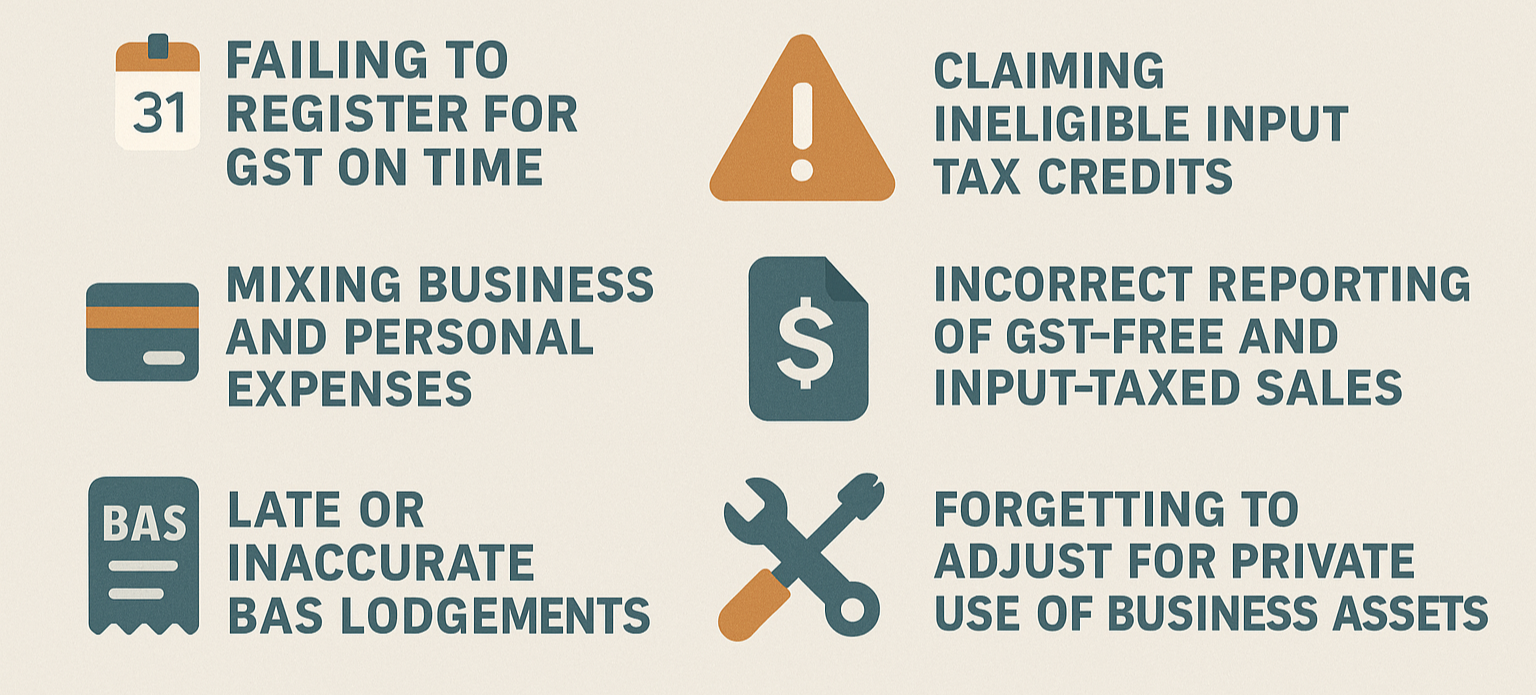
For many small business owners, the Goods and Services Tax (GST) can feel like a maze of rules and obligations. While GST is a critical part of compliance in Australia, it’s also an area where small businesses frequently make mistakes—sometimes costly ones. Understanding these pitfalls can help you save time, avoid penalties, and keep your business running smoothly.
One of the most common errors is not registering for GST when turnover exceeds the $75,000 threshold. Some businesses underestimate their revenue or delay registration, which can lead to backdated GST liabilities, interest charges, and penalties. It’s important to track revenue regularly and register as soon as the threshold is reached.
Small businesses often mistakenly claim GST credits on expenses that don’t qualify. For example:
Always check tax invoices and ensure they meet the Australian Taxation Office (ATO) requirements before claiming credits.
Many owners blur the line between personal and business costs. While it may seem convenient to put everything on one card, it complicates GST reporting and increases the chance of errors. Maintaining separate accounts makes bookkeeping clearer and ensures GST claims are accurate.
Not all sales are subject to GST. For instance, fresh food and certain health services are GST-free, while financial services and residential rent are input-taxed. Misclassifying these sales can lead to overpaying GST—or worse, underreporting and attracting ATO attention.
The Business Activity Statement (BAS) is a key compliance document. Missing lodgement deadlines or submitting incorrect figures can result in fines. Many small businesses rush their BAS without proper reconciliations, leading to errors in GST collected and claimed. Using accounting software or working with a registered BAS agent can help streamline this process.
If a business asset—like a car or phone—is used for both business and personal purposes, GST credits must be adjusted accordingly. Claiming 100% when the item is only partly for business is a common red flag for the ATO.
Expanding services, starting e-commerce, or exporting products may change your GST obligations. For example, overseas sales often have different GST rules. Failing to update GST practices as your business evolves can result in compliance issues.
GST compliance doesn’t have to be overwhelming. By being aware of these common mistakes—and seeking professional advice where needed—you can avoid costly penalties and keep your business on the right track. Proper planning, accurate record-keeping, and proactive management are the keys to stress-free GST reporting.
